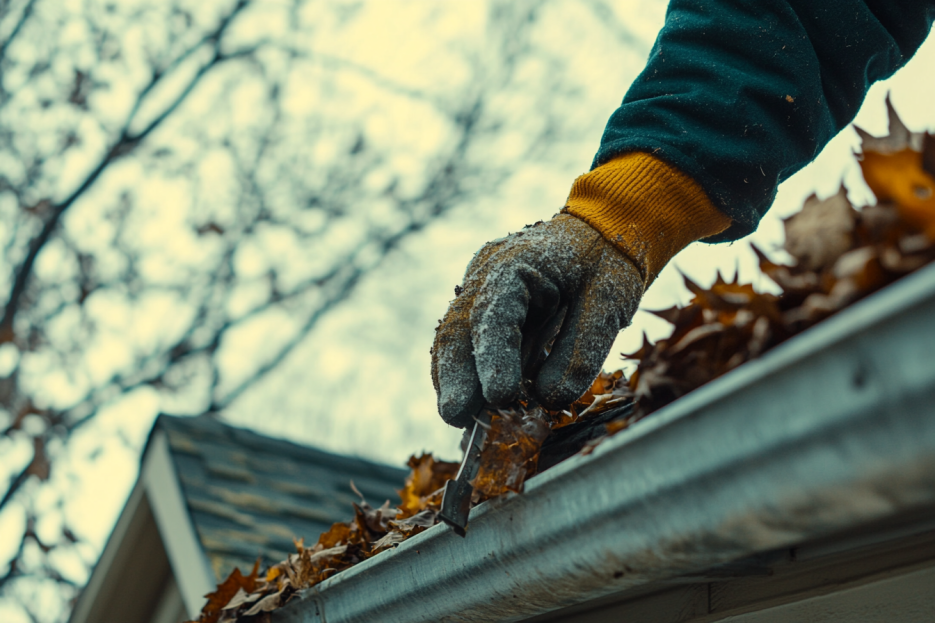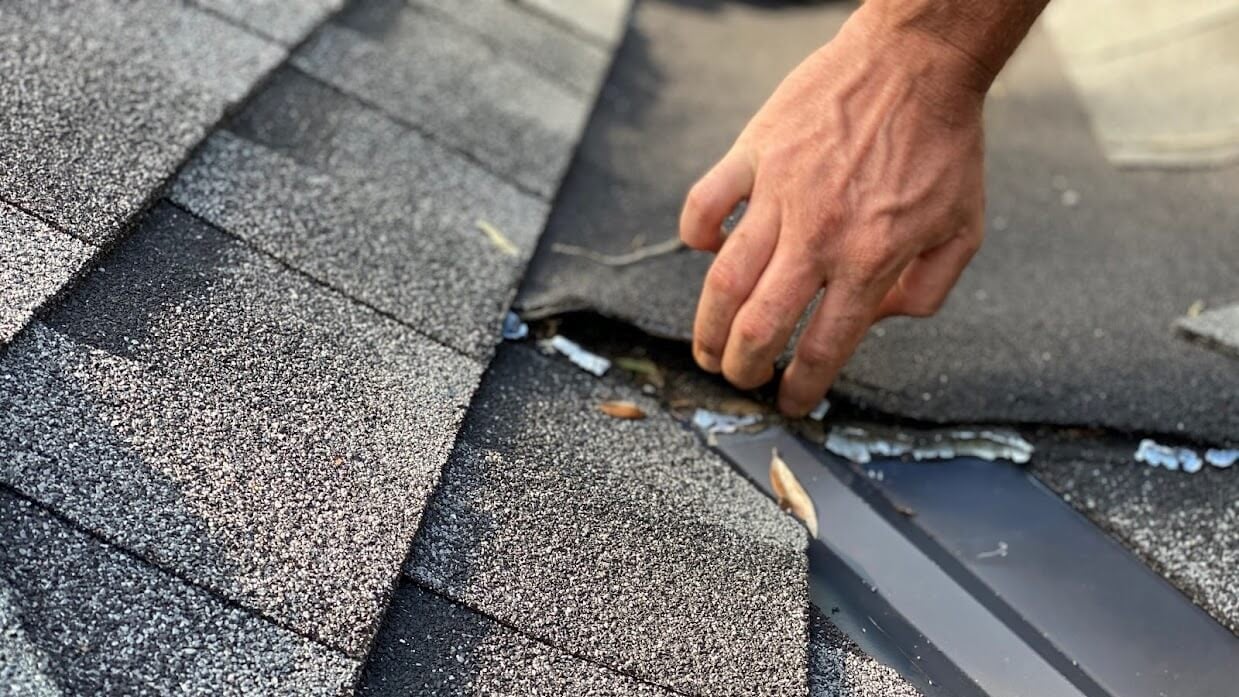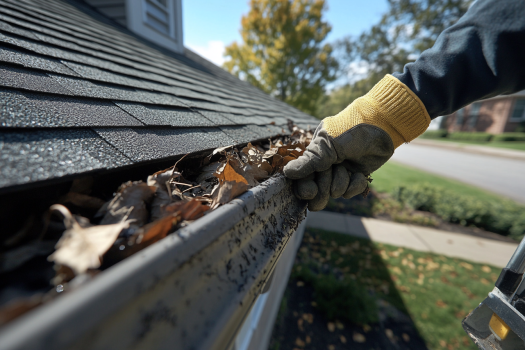As the seasons change, your roof plays a crucial role in protecting your home from shifting weather patterns. Preparing your roof for spring weather in Alexandria ensures that winter damage is addressed before heavy rains, strong winds, and fluctuating temperatures take their toll. A spring roof inspection helps identify potential problems before they turn into costly repairs.
Neglecting your roof in early spring can lead to leaks, mold growth, and even structural damage. Following a spring roof checklist will help you catch minor issues early, keeping your home safe and avoiding unexpected expenses.
Why Spring Roof Maintenance Is Essential
Winter in Alexandria brings cold temperatures, ice buildup, and occasional snow. These conditions can cause hidden damage that worsens as spring storms arrive. A thorough spring roof inspection ensures that your roof is in top condition before the rainy season begins.
Common Winter Roof Damage
- Ice dam formation: Ice dams trap water on the roof, which can seep under shingles and cause leaks.
- Shingle wear and tear: Freezing temperatures cause shingles to crack, curl, or loosen.
- Gutter clogs: Leaves, debris, and ice buildup can prevent proper drainage, leading to water damage.
- Condensation issues: Poor attic ventilation in winter can cause moisture buildup, leading to mold growth.
By checking for these issues early, you can prevent expensive repairs later in the year.
Spring Roof Checklist: Steps for a Healthy Roof
Performing a spring roof checklist ensures that your roof is prepared for the upcoming season. Here are the key steps to follow.
1. Inspect for Visible Damage
Start by visually inspecting your roof from the ground. Look for:
✅ Missing, cracked, or curling shingles
✅ Sagging or uneven areas
✅ Loose or damaged flashing around chimneys, vents, and skylights
✅ Signs of moss, algae, or mildew growth
If you notice any of these warning signs, schedule a spring roof inspection with a professional.
2. Check Your Gutters and Downspouts
Gutters and downspouts play a crucial role in directing water away from your home. Clogged gutters can lead to roof leaks and foundation damage.
Spring Gutter Maintenance Tips:
✔ Remove leaves, twigs, and debris from gutters
✔ Check for leaks or sagging sections
✔ Ensure downspouts direct water at least 3 feet away from the foundation
Poor drainage can lead to structural damage and mold growth in homes. Keeping gutters clear is essential for maintaining your roof’s integrity.

3. Look for Signs of Water Damage
Water stains on ceilings or walls can indicate a roof leak. Inside your attic, check for:
- Wet insulation
- Mold or mildew growth
- Sunlight coming through the roof
If you detect moisture, schedule a spring roof inspection immediately to prevent further damage.
4. Trim Overhanging Tree Branches
Tree branches can pose a significant risk to your roof. Strong spring winds or storms can cause branches to scrape against shingles or fall, leading to major repairs.
Tree Trimming Benefits:
✔ Reduces debris buildup in gutters
✔ Prevents damage from falling branches
✔ Increases sunlight exposure, reducing moss and algae growth
The National Arbor Day Foundation (arborday.org) recommends regular tree trimming to prevent damage to nearby structures.
5. Examine Roof Ventilation
Proper ventilation regulates attic temperature and prevents moisture buildup. Poor ventilation can lead to ice dams in winter and excessive heat in summer.
Signs of Poor Ventilation:
🚩 High attic temperatures
🚩 Ice dams in winter
🚩 Musty odors or mold growth
If your attic has ventilation issues, consider installing ridge vents or attic fans to improve airflow.
6. Schedule a Professional Spring Roof Inspection
Even if your roof looks fine, a professional spring roof inspection can identify hidden problems. Experts can check for weak spots, small leaks, and other potential issues before they become major concerns.

Common Myths About Spring Roof Maintenance
Many homeowners believe certain myths about roof maintenance, leading to costly mistakes. Here are a few misconceptions debunked:
Myth #1: If There’s No Leak, My Roof Is Fine
Leaks often start small and worsen over time. A spring roof inspection can detect hidden issues before they become major problems.
Myth #2: Gutters Only Need Cleaning in Fall
Spring debris, pollen, and rain can clog gutters just as much as fall leaves. Cleaning them twice a year prevents blockages.
Myth #3: New Roofs Don’t Need Inspections
Even a recently installed roof can develop minor issues, especially after winter storms. Regular inspections help maintain its longevity.
Does Home Insurance Cover Spring Roof Damage?
Spring storms can bring heavy rain, hail, and strong winds, which may damage your roof. Many homeowners wonder if insurance covers these types of damages.
What’s Typically Covered?
✅ Damage from hail, wind, and fallen trees
✅ Sudden and accidental roof leaks
What’s NOT Covered?
❌ Gradual wear and tear
❌ Damage from lack of maintenance
To avoid claim denials, keep records of spring roof inspections and routine maintenance. If your roof suffers storm damage, document it immediately and contact your insurance provider.
How to Protect Your Roof from Spring Storms
Spring weather in Alexandria can be unpredictable. Here’s how to prepare your roof for sudden storms:
- Secure loose shingles and flashing before storm season.
- Reinforce roof decking if needed.
- Clean gutters regularly to prevent water pooling.
- Consider impact-resistant roofing materials if replacing your roof.
Taking these precautions reduces the risk of emergency repairs after a storm.
Get a Free Spring Roof Inspection in Alexandria
Spring is the ideal time to assess and repair roof damage before summer storms hit. At AWS Restorations, we provide expert spring roof inspections in Alexandria to ensure your home stays protected.
Let our experienced team handle your spring roof checklist and provide necessary repairs or maintenance. Get a free inspection now and keep your roof in top shape all season long!



 (703) 426-4000
(703) 426-4000